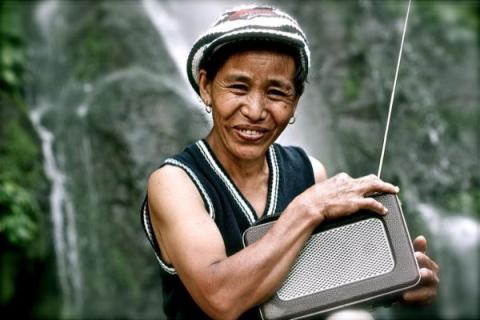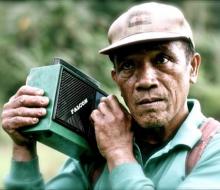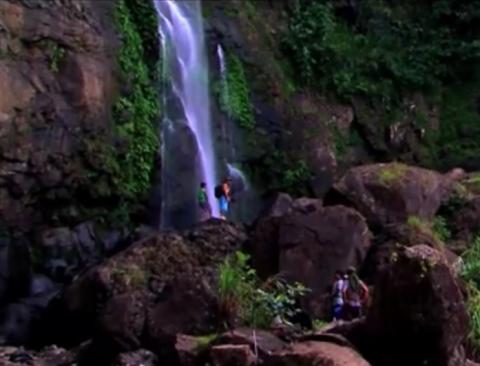 Radio Cordillera is a road movie through the Northern Island Luzon on the Philippines. In search for the transmission range of a local community radio, we cross the mountains of one of the poorest regions on the archipelago. Soon we end up at Cordillera day, a meeting of farmers, trying to improve their living conditions. But these farmers are closely watched by the military, that suspects them to be rebels.
Radio Cordillera is a road movie through the Northern Island Luzon on the Philippines. In search for the transmission range of a local community radio, we cross the mountains of one of the poorest regions on the archipelago. Soon we end up at Cordillera day, a meeting of farmers, trying to improve their living conditions. But these farmers are closely watched by the military, that suspects them to be rebels.
Directed, shot and edited by Roel Nollet - roelnollet.be
25 minutes - please watch in full screen
***Radio Cordillera was made in cooperation with the ngo New World, the Province of East-Flanders and their local partners in the Philippines. bevrijdewereld.be
IN SHORT:
"Farmers in the Philippines are like junkies. They always become dependent. And the more they move, the more they get into poverty," says Chito Medina of Masipag, an organization that promotes organic farming. He is talking about pesticides and fertilizers.
The Philippines are one of the biggest rice importing countries in the world, and their rice fields are getting depleted. To improve the productivity of the fields, the government promotes the use of genetically modified rice varieties. These varieties grow faster than traditional ones, but you need chemical pesticides and fertilizers. Farmers cannot afford these kind of products. And after a while the soils can't grow anything without it anymore.
In the meanwhile big mining companies destroy the lands and big containers full of rice and vegetables are being imported into the port of Manila. The market is overflown with cheap rice from China and Vietnam. The farmers cannot compete with the price and rather dump their crops along the road, than wasting money on bringing them to the market . It's quite ironic that the farmers - the food producers - themselves are the ones who are going to bed with an empty stomach.
'Development aggression' is what local ngo's call the policy of the government. The Philippine government is supporting solutions that are not appropriate to the farmers. On the contrary, only the government itself is gaining anything from it, together with the companies they are supporting in selling their products. It's business as usual.
To make a fist against this situation, farmers unite themselves. But not without danger. Leaders of People's Organizations are easily targeted and branded as rebels. A lot of them were killed or kidnapped already.
We wanted to know how far the voice of the farmers reaches, so we climbed into the mountains to test the signal of the local community radio. "This is 104.7 FM. You are listening to Radio Cordillera."
source: Roel Nollet


